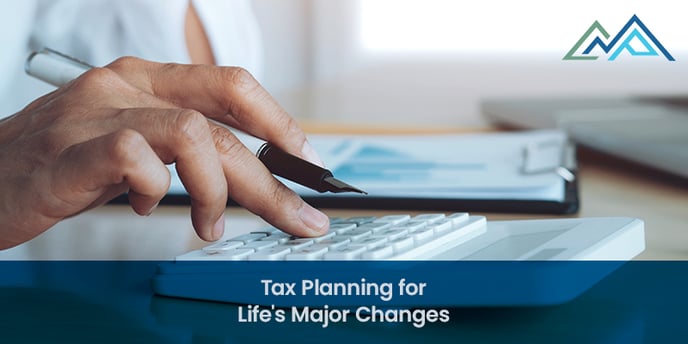Life is complicated, and so are taxes. Any major change in your life is probably going to have a significant impact on your tax situation. There are a lot of rules, exemptions, and exceptions to keep track of – it can all get very confusing.

Here’s how a few of the most common life events will affect your taxes:
Getting Married and Having Children
It pays to get married as there are a lot of tax benefits you qualify for once you tie the knot. Filing taxes jointly with your spouse often results in reduced income taxes.
You can also take advantage of the unlimited marital deduction, which allows you to transfer your assets to your spouse tax-free when you die. And if you have children, you can use the Child Tax Credit to lower your taxable income by up to $3,6000 for children 5 and under, and $3,000 for ages 6-17.
Landing a Job
Getting a job means you’ll be earning more income, and earning more income means you’ll have to pay more taxes.
If your job doesn’t provide you with that much income, though, you may qualify for the Earned Income Tax Credit (EITC).
If you’re single or filing as the Head of Household and you have no kids, you have to make less than $21,430 (in 2021) to qualify for the EITC. If you have one child in that situation, you had to make less than $42,158 to be eligible. If you have two children, it was $47,915.
If you’re Married and Filing Jointly, you had to make less than $27,380, with no kids, $48,108 with one kid, or $53,865 with two kids to get the EITC for income earned in 2021.
These income thresholds are subject to change, so be sure to check the IRS’s website and look at up-to-date information before you file your taxes.
If you are wondering if your work clothes are tax deductible, they may be....
Going to College
College is expensive, but at least there are a few tax breaks you can use to make the financial burden of higher education a little less heavy.
Students who make less than $80,000 a year and have at least a half-time course load quality for the full American Opportunity Tax Credit, which pays for 100% of your first $2,000 in education expenses and pays for 25% of your next $2,000 in education expenses. If this amount is greater than the amount of taxes you owe, you get to keep 40% of the remaining credit as a refund. Students who make between $80,000 and $90,000 qualify for a partial American Opportunity Tax Credit.
Students who make less than $55,000 (or less than $110,000 if they’re married filing jointly) also qualify for the Lifetime Working Credit. This benefit gives you back 20% of your first $10,000 in education expenses for a maximum of $2,000 per return. Unlike the American Opportunity Tax Credit, though, if this amount is greater than the amount of taxes you owe, you won’t get any cashback. This credit is not refundable.
Conclusion
If you have any questions about tax planning for major life changes, click the button below and schedule your consultation.

















